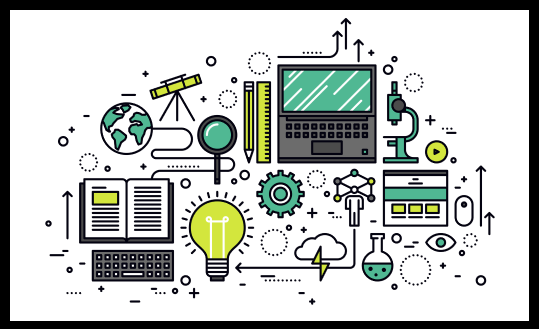In January 2024, the World Economic Forum’s Global Risk Report 2024 predicted that over the next two years, mis/disinformation will be “the most severe global risk”.
Less than a year since the report, headlines about fake news and misinformation aiding riots, war and influencing elections are commonplace. The US presidential election, touted as one of the most important elections in history, is facing a “precarious moment” in the context of the use of mis/disinformation in elections, according to Department of Homeland Security Chief of Staff Miles Taylor.
The global decline in internet freedom for the 14th consecutive year according to Freedom House’s Freedom on the Net 2024 report is not good news either, particularly when 30% of 16–24-year-olds think TikTok is the ‘best for news’, according to research conducted during recent UK riots.
Moreover, people continue to depend on social media for news while AI-aided misinformation is increasingly making the internet untrustworthy, and depending on the state or tech giants – the two parties that hold the power to regulate the internet but have often been found to be supporting a free-for-all rather than tidying it up – to solve the problem has proven unproductive. So, what can we do?
Media Literacy, marked by week from 24 to 31 October, offers a glimpse of what can be done.
More than fake news
There isn’t one single definition of media literacy, but different interpretations help us paint a holistic picture of it. It’s true that media literacy is often linked to detecting and flagging fake news, but the Organization of Security and Co-operation in Europe (OSCE) Representative on Freedom of the Media, Teresa Ribeiro, says there’s much more to it than that: “It’s about empowering citizens to navigate the digital landscape with discernment and critical thinking, ensuring informed democratic participation.”.
Likewise, Media Literacy Now, an advocacy group, defines it as, “the ability to decode media messages – including the systems in which they exist– assess their influence on thoughts, feelings and behaviors, and create media thoughtfully and conscientiously”. This wide and active interpretation of media literacy as a range of skills and abilities is followed by the UN who encourage us to ask some basic questions such as, “How can we access, search, critically assess, use and contribute content wisely, both online and offline? What are our rights online and offline? What are the ethical issues surrounding the access and use of information? How can we engage with media and information and communications technologies (ICTs) to promote equality, intercultural and interreligious dialogue, peace, freedom of expression and access to information?”
Critical to democracy
“I don’t think it is overblown to say that we are sleepwalking our way into a dystopian future,” says Bryce Corbett, a journalist and media professional who runs a news podcast for children in Australia. “Misinformation and disinformation, the rate at which it is being peddled and believed and shared by a naive global populace is, I think, the biggest threat to democracies around the world.”
The fundamentals of democracy rest on an assumption that the voter knows what their reality is, what the government has done for them and what the contesting leaders have offered to do for them if they win. The moment you look at this assumption from the lens of an unreliable media landscape filled with AI-powered content, the concept of democracy is compromised. According to The Principles for the Future of Responsible Media in the Era of AI, a World Economic Forum white paper, “media fragmentation, coupled with the increase of generative AI content often being indistinguishable from non-synthetic content, have made it harder for consumers to know what to trust and have increased the belief that the media is biased or untrustworthy. In turn, news consumers have become more susceptible to disinformation from alternative sources.”
Corbett’s fears coupled with multiple reports about the role of disinformation in compromising democracy tells us one thing. If we aspire for a free, democratic society, media literacy will have to become a global priority for citizens, tech companies, governments and society at large. Media literacy can also be instrumental in aiding SDG 16.10 – “public access to information” – which is pivotal to achieving all other SDGs, like gender equality, climate change, eliminating poverty, reducing inequalities and sustainable cities.
In search of a solution
There’s no simple fix to such a complex problem, but there are things we can do to raise media literacy and through it our support for democracy:
- Catch them young: Governments can take steps to make media literacy a part of the school curriculum. California passed a law that mandates public schools to instruct media literacy, including recognizing falsified data, identifying fake news and generating responsible internet content.
- Monitor yourself: Algorithms are designed to make you want to spend more time on social media platforms. Being aware of this fundamental rule and being mindful of the language you use can help. If you are trying to make up your mind on a critical issue such as migration, war or climate disasters, try searching it with contrasting key words to look at the issue from the other side of the debate. “Just because all of the returns support your existing position doesn’t necessarily mean that that’s all the information out there,” says Francesca Tripodi, Assistant Professor at UNC School of Information and Library Science in this article that provides a simple framework to keep your media behavior in check.
- Support independent news sources: Reduce your dependency on social media for critical issues that affect the world around you. When it comes to complex issues that have no straight answers, let the professional information gatherers do the job for you. While it may not be as quick and fun to read, watch and listen to a news story carefully reported and edited by professionals, it will challenge your biases in the service of facts, something that algorithms would never do.
